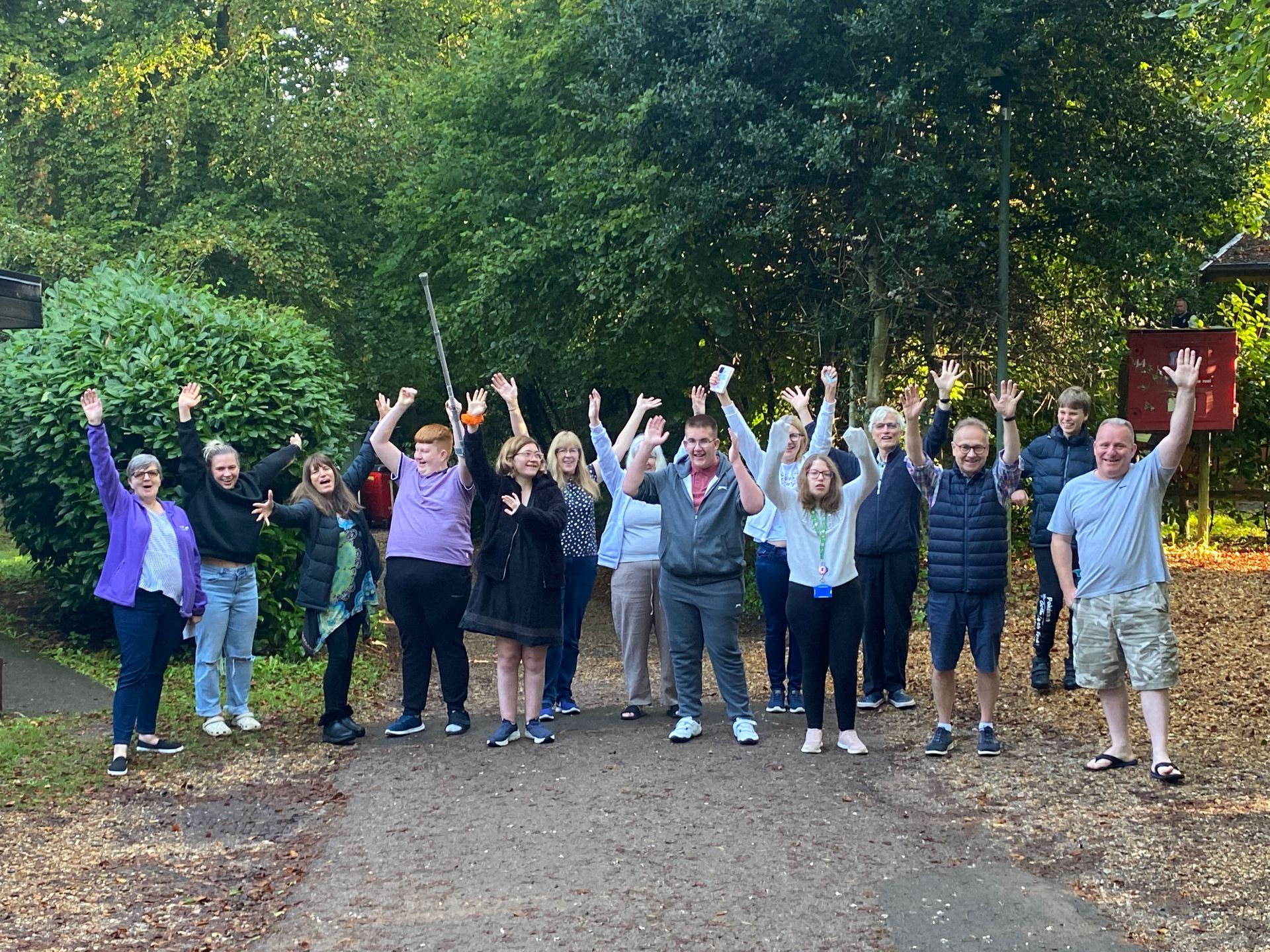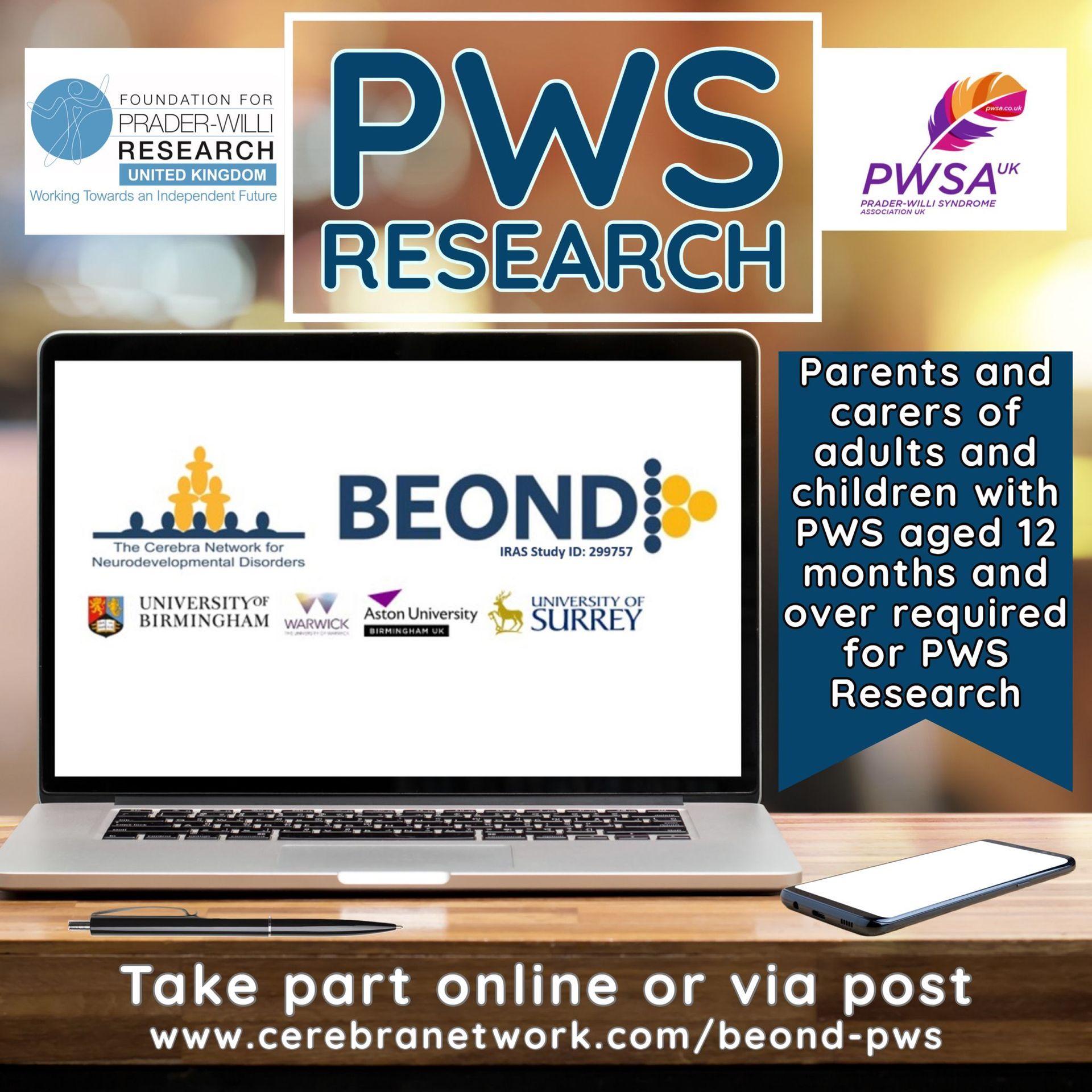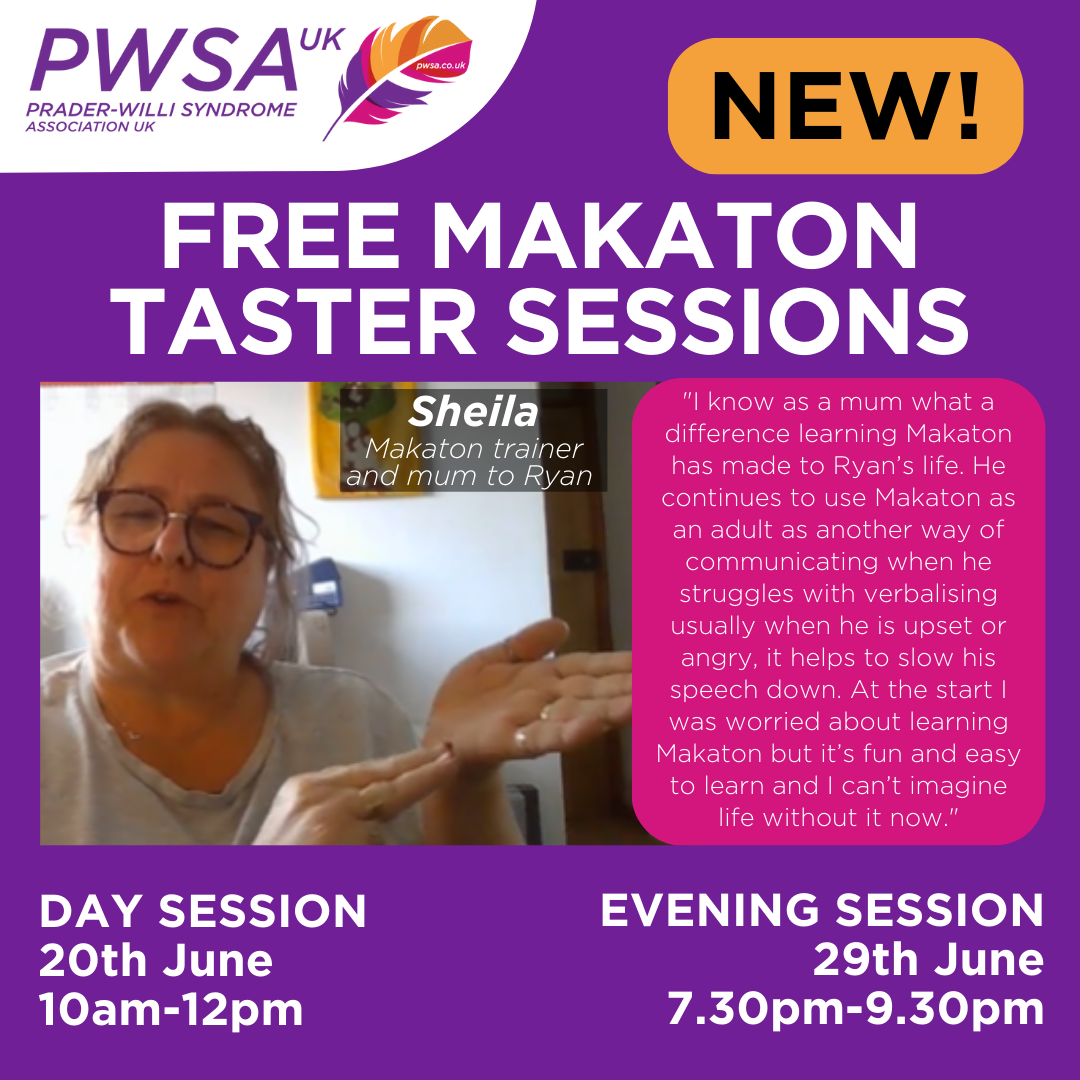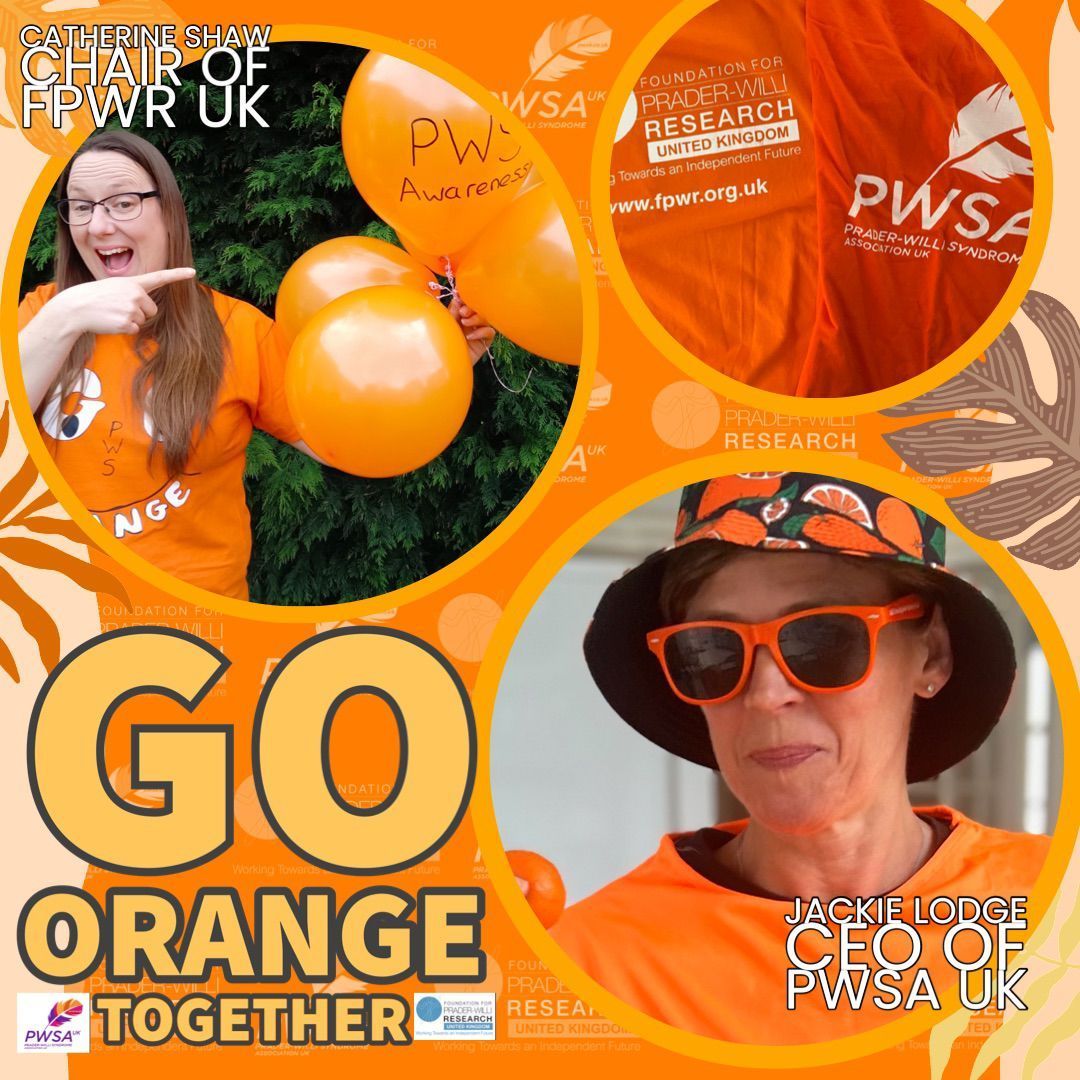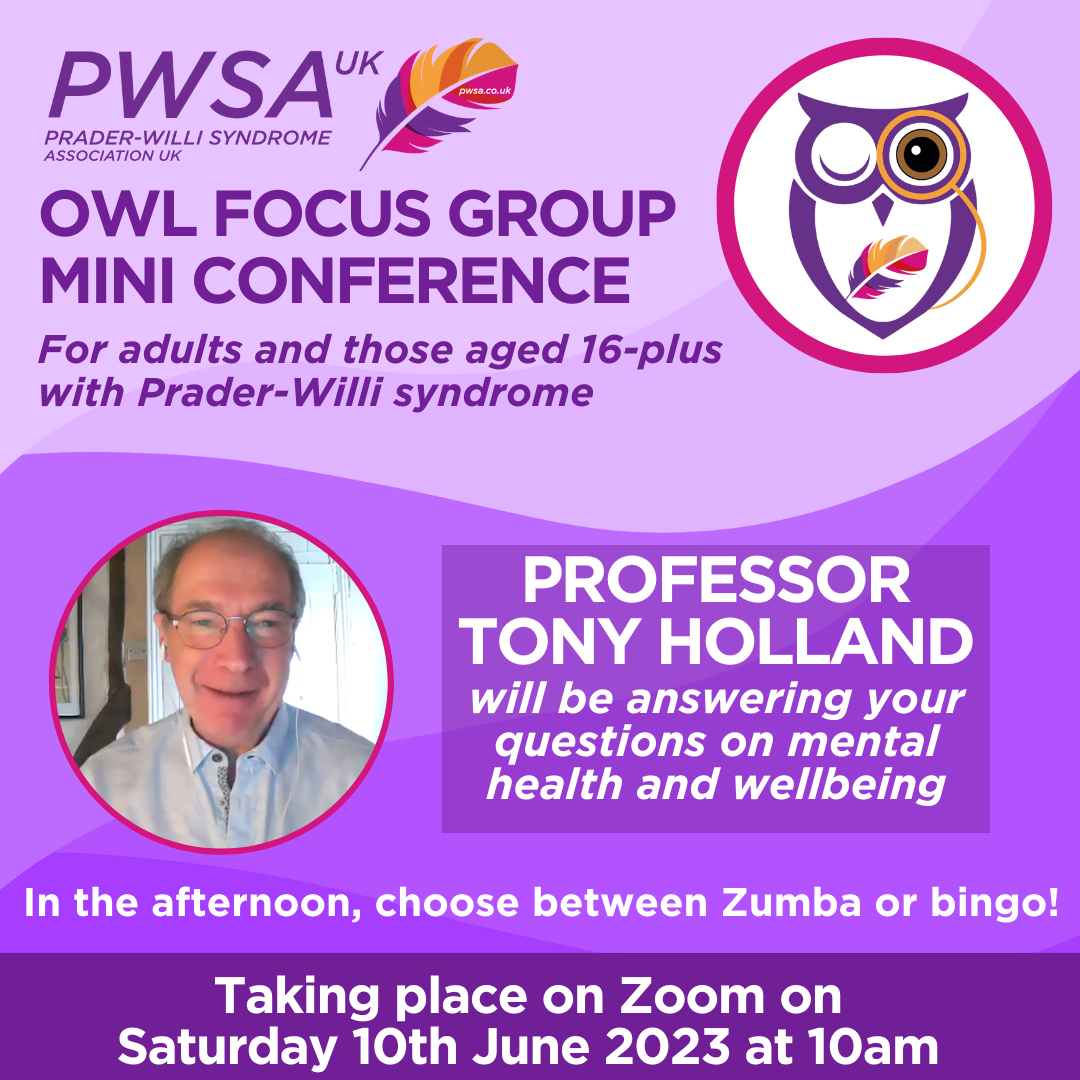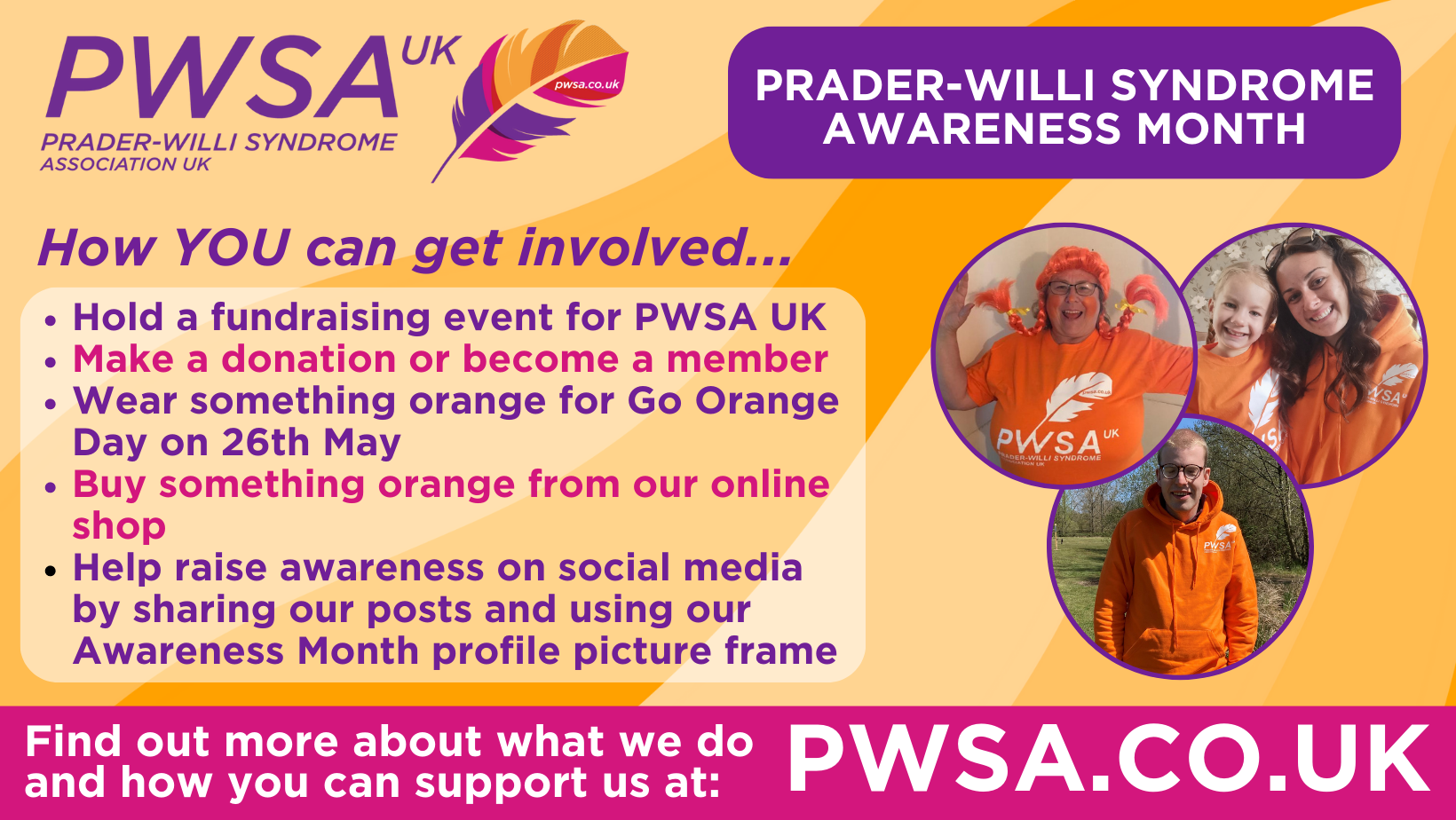Update on the Stay Calm Project
The findings of this study into emotional outbursts and meltdowns in children and young people make for interesting reading
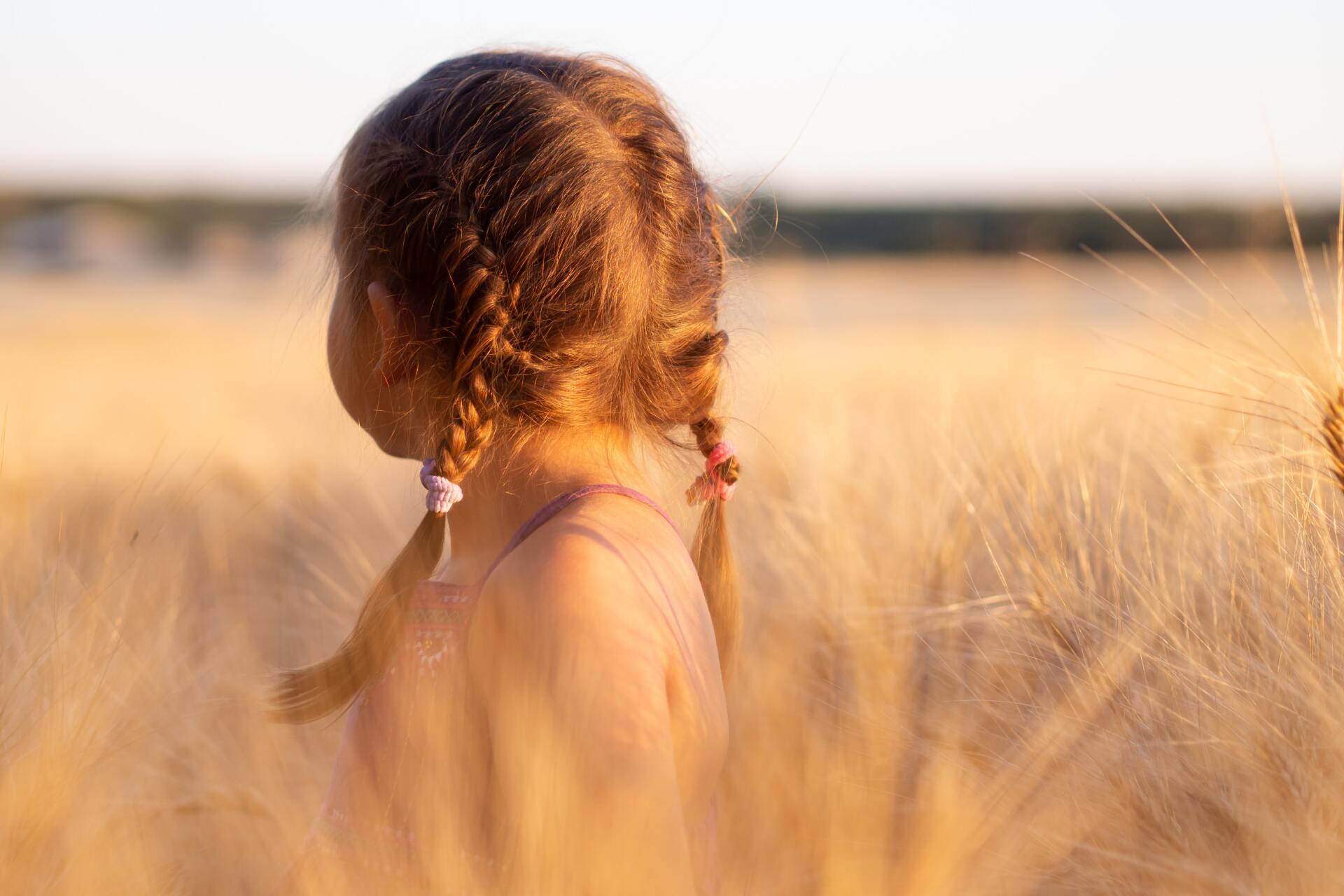
The findings of research by the University of Birmingham into emotional outbursts and meltdowns in children and young people have now been published. The study, known as the Stay Calm Project, was led by Justin Chung, under the supervision of Dr Kate Woodcock at the Centre for Applied Psychology, University of Birmingham.
You can read the full article here, but a summary of the research highlights can be found below:
- Researchers received a total of 268 responses to their emotional outburst questionnaire, developed to more closely measure outbursts or meltdowns in children and young people. Respondents included families of children and young people with a wide range of diagnoses, including PWS.
- The questionnaire was used to find out what kinds of situations could lead to these emotional outbursts or meltdowns, which in turn helped researchers to hypothesise the different reasons for outbursts or meltdowns in these situations.
- They then divided the 268 responses into three groups, each with a distinct pattern in terms of the situations linked to outbursts or meltdowns:
- Children and young people in the first group experienced outbursts or meltdowns frequently across all types of situations. Researchers think that outbursts or meltdowns in this group may be related to sensory sensitivity – children and young people in this group may have differences in sensory processing so that they may find it especially difficult to process what is happening in the surroundings and control their emotions at the same time.
- Children and young people in the second group experienced outbursts or meltdowns frequently in situations where they might feel safe (such as at home, with immediate family members), but not in other situations. Researchers think that outbursts or meltdowns in this group may be related to perceived safety – children and young people in this group may be masking any distress they feel outside of safe situations, so that this negativity may build up and it may then be released as an outburst or meltdown when the children and young people return to a safe situation.
- Children and young people in the third group experienced outbursts or meltdowns frequently in situations where they might not feel safe (such as in public, in an unfamiliar place). Researchers think that outbursts or meltdowns in this group may be related to perceived unsafety – children and young people in this group may have differences in safety perception so that they may find these situations particularly distressing, which may make it more difficult for children and young people to control their emotions in these situations.
- The types of situations this study focused on are linked to what is happening in the background that may make outbursts or meltdowns more likely to happen (for example, where a person is or who they are with). The research team says it expects that there are other background factors linked to outbursts or meltdowns that it has not identified in this study and that some children and young people may experience outbursts or meltdowns for multiple reasons (such as a person may have differences in sensory processing and safety perception linked to outbursts or meltdowns).
- The team found that some diagnoses were more associated with one group over the others, but perhaps more importantly, it found that diagnosis alone did not fully predict what situations were linked to a child or young person’s outbursts or meltdowns. Therefore, researchers think that it would be beneficial for future research into outbursts or meltdowns to be more inclusive in this respect to maximise the impact that the work can bring to families.
- In addition to these main findings, the research highlighted that in this study, less than a quarter of families received effective support for outbursts or meltdowns. This points to a need for more accessible and more effective support for families, and it is hoped that this line of research can lead to the development of more targeted intervention strategies.
- Finally, the study emphasised the importance of appropriate language use, as families have expressed to the team that terms that have commonly been used by researchers and professionals to describe emotional outbursts or meltdowns, such as “temper outbursts” or “temper tantrums”, were not appropriate. It is hoped that the wider research community will begin to adopt this shift to “emotional outbursts” that has been suggested in the publication, and researchers think that future work should focus on working with families to ensure that researchers and professionals are using the appropriate terminology.
In addition to this publication, In addition to this publication, the research team has also created a parent guide on emotional outbursts or meltdowns for Cerebra, a UK charity supporting children with brain conditions. The guide available to download here.

